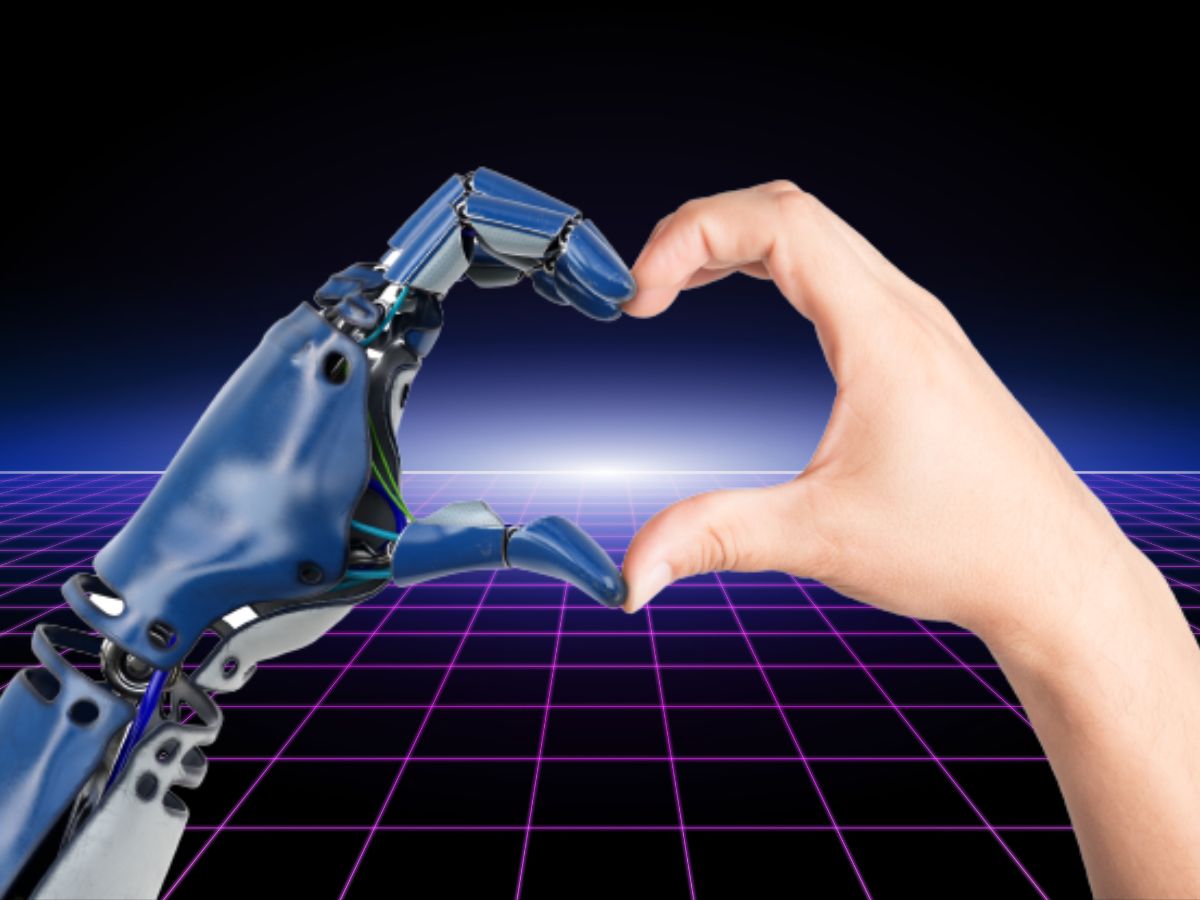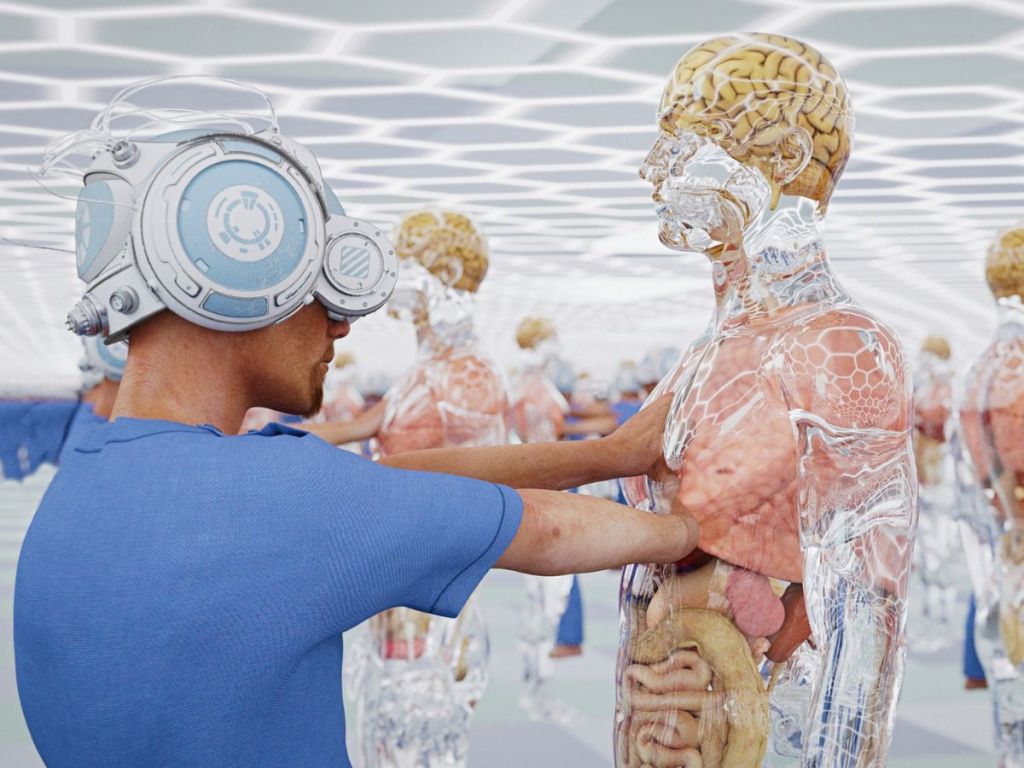Ageing is an inevitable process that affects all living beings. Anti-ageing has long been the subject of scientific inquiry and fascination. As our understanding of biology and medicine has evolved, researchers are increasingly exploring innovative approaches to tackle the complexities of ageing and extend people’s lifespans. One such promising avenue involves harnessing the power of artificial intelligence (AI) to unlock the secrets of ageing and develop interventions to slow or stop it. Anti-ageing AI has arrived.
Bryan Johnson
Anti-ageing tech has become such a popular topic that scientists that work on anti-ageing are becoming hugely influential on social media. These anti-ageing crusaders are rising to the top of news feeds, in their sometimes-bizarre quests to live forever.
In an unconventional and somewhat strange quest, tech millionaire Bryan Johnson has embarked on a mission to turn back the hands of time. The 45-year-old entrepreneur from Utah spends US$2 million (AU$3m) annually on an intensive regime aimed at reducing his biological age.
Bryan Johnson’s journey to defy ageing began in 2013 when he sold his payment-processing company, Braintree, to eBay for a whopping $800 million. With the cash, he started other ventures, including an anti-ageing research company called Project Blueprint. Johnson now claims that his biological age is now 36, making him eight years younger than his chronological age of 44.
Johnson adheres to a strict daily schedule, meticulously controlling his diet (less than 2,000 calories a day, eating a vegan diet, and fasting for 16-18 hours daily). He also takes over two dozen supplements, and maintains a rigorous fitness routine.
The biggest question here is, will longevity be a pursuit only affordable to the rich?
David Sinclair
Another anti-ageing researcher called David Sinclair who is a rising star in the world of reversing-ageing is using cutting-edge tech to reset the age of mice both forward and backwards, which is fascinating. Yes, that’s right, he can make the mice both older and younger. Sinclair famously said he is optimistic the person who will live to 150 years old has already been born.
Anti-Ageing AI
Behind anti-ageing breakthroughs is AI. Alex Zhavoronkov, PhD is an adjunct professor of artificial intelligence at the Buck Institute for Research on Ageing. He is also the founder and CEO of Insilico Medicine. The company uses artificial intelligence technologies for drug discovery. And, he’s also the founder of Deep Longevity, who aim to extend lifespan. Zhavoronkov is all for using AI to help solve ageing-related problems.
He says, “I’ve been studying ageing and disease since the mid-2000s with the help of machine learning and deep neural networks. For human scientists, sifting through reams of data – including biological data and data from years of studies and clinical trials – in order to pinpoint a new pathway to treat a disease is labour-intensive, expensive, and often leads to dead-ends. We are looking for a very tiny, very specific needle in a very massive, very complex haystack.
“AI can process the same data with incredible speed and efficiency and find connections that human scientists may miss. We know that the underlying mechanisms behind ageing and many ageing-related diseases overlap. If we can find those areas of overlap, we can figure out how to block those pathways, and use AI to design new molecules that are tailor-made to stop both ageing and disease simultaneously.”
AI to increase healthspan
Prof. Evelyne Bischof is a Professor of medicine at Shanghai University, and the Head of the Scientific Board at the Longevity Science Foundation. She is a longevity physician. She says, “I know for sure that healthy longevity matters. What else do we know for sure? That adding health to lifespan is possible, and that is the actual mission of healthy longevity medicine: To extend the healthspan along the lifespan, by targeting age-related processes.”
AI can help in research that will get us there. Soon, Prof. Bischof says, we will be able to eliminate age-related diseases, so we can add life to years, rather than years to life.
Dr. Alberto Melon Fernandez, MD is the CEO and Co-founder at Crotalus Labs. He is a speaker, biohacker, and MD haematologist, fighting to expand healthy lifespan through integrative medicine. Dr Fernandez doesn’t think that AI alone will solve ageing. He says, “Neither AI nor any other tool or technology alone can solve something as complex as the ageing process. Nonetheless, I am convinced that it will be a fundamental tool in the long battle to understand and face it successfully.”
Anti-Ageing AI: Blocking the ageing process
Dr Zhavoronkov says that as people age, they are more susceptible to many diseases – heart disease, cancer, Alzheimer’s, fibrosis, just to name a few. “We know that there are key biological processes or pathways involved in ageing and that many of these processes are also involved in common ageing-related diseases. These processes include a breakdown of communication between cells, deterioration of cells, problems with nutrient signalling, stem cell exhaustion and other breakdowns happening at the molecular level. By using AI to analyse the data around ageing and diseases, we can pinpoint where these changes are happening and design drugs to block these mechanisms. Ultimately, we are focused on drugs that combat both disease and ageing, but the approach is the same – identify a target, design a drug, and block the pathway in order to improve or reverse the course of the disease and ageing process.”

Is AI really artificial ?
Dr. Fernandez says that some people make the case that artificial intelligence is really neither true intelligence (yet), nor completely artificial (because we, living beings, create and develop it). “Evolution has led us to develop the capacities we have now, so it is fair and expected that we accelerate it,” he said.
Zhavoronkov says that longevity medicine is a fast-growing area of interest. “I’m one of the founders of the Ageing Research and Drug Discovery conference, now in its 10th year, happening at the University of Copenhagen in September. The conference brings together leading scientists and experts who are exploring the causes of ageing and ways to intervene in order to improve our healthspan. They will present on senolytics (drugs that stop cell death and improve human health); using bioelectricity — the body’s electrical signals — to impact cell growth; cyroprotectants, or substances which protect cells during freezing; as well as of course sessions on AI, quantum computing and large language models for longevity. These interactive sessions allow experts to share their latest findings, collaborate and advance the science.”

Anti-Ageing AI: Personalised intervention
Zhavoronkov says that although we can certainly improve our health and longevity with diet and lifestyle, we are still all going to age and eventually die. “But there is a great amount of effort underway to use our scientific knowledge around disease and biology along with AI to rapidly increase our understanding of the underlying mechanisms and allow us to intervene and to slow and/or improve the ageing process therapeutically, as we would any disease. It requires dedicated, sustained effort over many years. Many of the people engaged in this work will not necessarily see it through to its successful conclusion. I have a singular focus when it comes to working toward improving human health and longevity and have completely devoted my time and life to this cause.”
Dr. Fernandez is hopeful. “Artificial intelligence is undoubtedly transforming the landscape of ageing research and longevity medicine. With the integration of AI-driven technologies, we are inching closer to uncovering the secrets of ageing, paving the way for personalised interventions that hold the promise of healthier and extended lifespans. As AI continues to evolve, we stand on the cusp of a new era where human potential and scientific progress converge to redefine the possibilities of ageing.”





